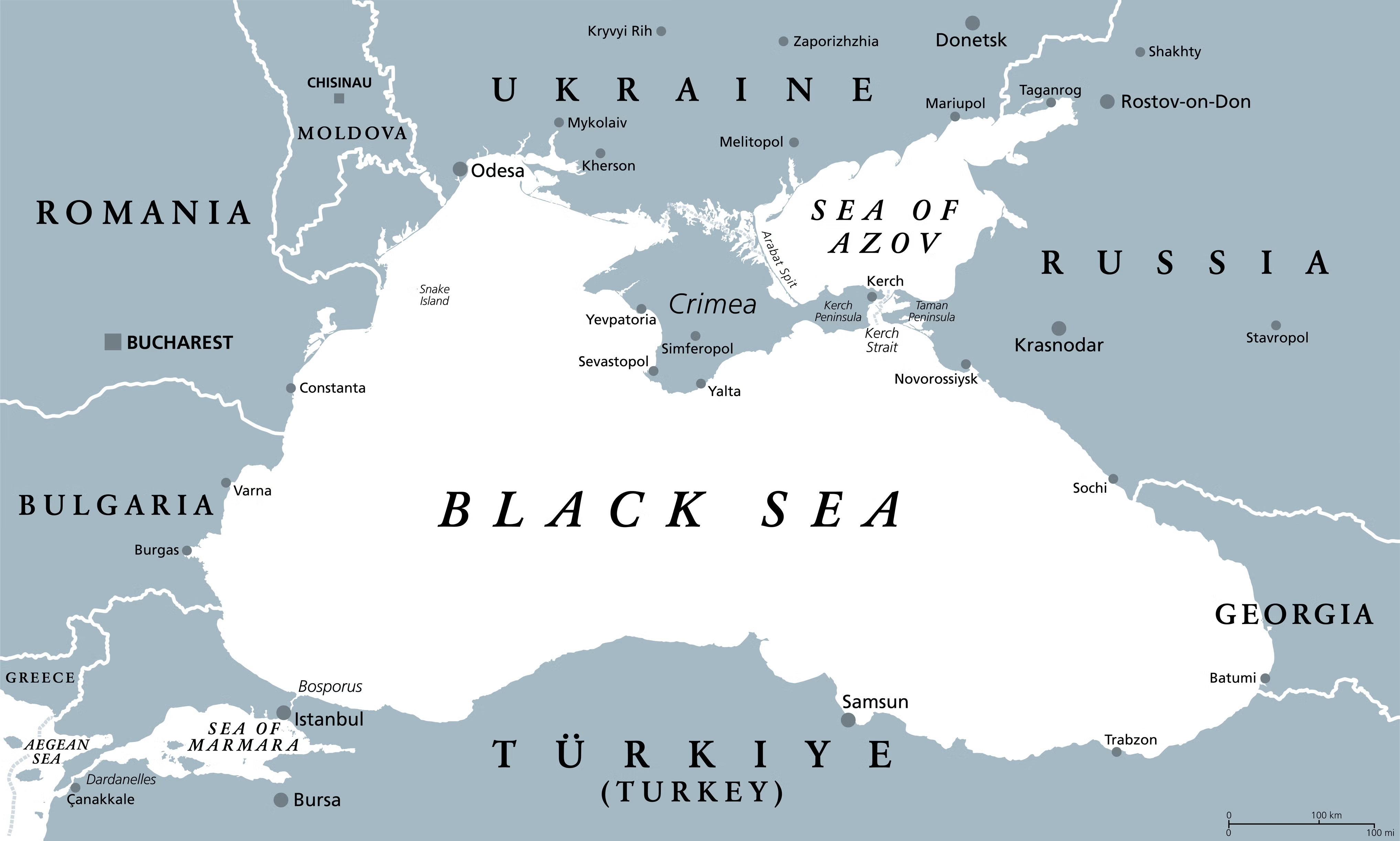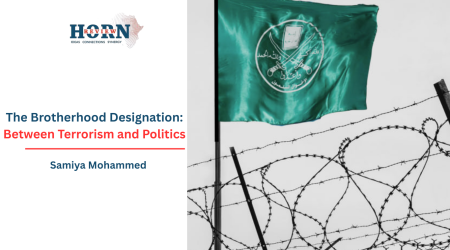
5
Apr
Ceasefire on the Black Sea: A Turning Point for Global Grain Trade and Food Security in Africa?
The recent ceasefire deal between Ukraine and Russia in the strategically critical Black Sea region may mark a turning point in a conflict that has not only redefined European security but also disrupted global grain trade. With U.S. President Donald Trump increasingly pushing for a swift resolution to the Russia–Ukraine war, the prospects of restored grain exports and stabilized food supplies have captured global attention.
For years, Ukraine and Russia have been two of the world’s most significant grain exporters, with the Black Sea serving as a vital artery for the global supply of barley, maize, and wheat. The recent ceasefire deal, brokered with international mediation, is intended to restore safe navigation along the contested maritime corridor. By re-establishing the flow of grain exports from Ukrainian ports, the agreement could help lower soaring global food prices and alleviate the acute shortages experienced in many parts of the world.
However, the deal comes with conditions that are still under negotiation. Russia has indicated that its participation in a full-scale ceasefire might hinge on certain economic concessions, including the easing of sanctions imposed on its state-owned financial institutions. Critics argue that these prerequisites could weaken the resolve of international partners seeking a complete end to hostilities.
Nonetheless, the ceasefire is viewed by many as a necessary first step toward the eventual reopening of trade routes, and the deal’s success will likely depend on both sides honouring their commitments over the coming months. The potential to restart grain exports is especially significant given that, prior to the conflict, Ukraine and Russia together accounted for around 25 percent of global barley, maize, and wheat exports.
President Trump has long positioned himself as a peacemaker, and his recent diplomatic initiatives point to an effort to expedite an end to the protracted conflict. His administration has engaged in high-level talks with both Russian President Vladimir Putin and Ukrainian President Volodymyr Zelenskyy. While Trump’s strategy—relying on economic leverage such as sanctions and tariffs—has drawn criticism for allegedly side-lining Ukrainian interests, it reflects a broader ambition to reconfigure U.S. foreign policy.
Trump’s approach is characterized by a desire for rapid conflict resolution. By publicly demanding an immediate ceasefire and pressuring both sides with the threat of economic penalties, his administration is attempting to create a situation where the costs of continued hostilities outweigh the benefits. Yet, this bold stance carries risks. The insistence on a quick peace without guaranteeing robust security arrangements for Ukraine may inadvertently empower Moscow by creating conditions that favour concessions over meaningful negotiations. Critics warn that any compromise reached under such pressure could lead to a long-term imbalance, leaving Ukraine vulnerable to future aggression. Trump’s strategy, therefore, is a double-edged sword—while it has the potential to bring an end to conflict, it also risks undermining the very stability it aims to achieve.
The war’s disruption of grain exports from the Black Sea has had immediate and far-reaching economic consequences. With key ports closed or operating under intermittent ceasefires, the global supply of grain has been significantly curtailed. This scarcity has driven up prices worldwide, making staple foods more expensive and exacerbating food insecurity in vulnerable markets. The ceasefire offers a tentative pathway toward restoring these vital supply chains.
If Ukrainian ports can resume operations safely, global grain markets may gradually return to a state of equilibrium. A reopening of these trade routes would reduce the strain on international food supplies, lower prices, and ease the economic burden on countries that have been hard-hit by soaring food costs. However, the restoration of normal trade flows hinges on the durability of the ceasefire. Analysts point out that any lapse or violation could quickly undo progress, leading to renewed uncertainty in global markets.
Furthermore, the long-term prospects for market stabilization depend on significant investments in port infrastructure and the creation of secure, predictable trade corridors. Only through concerted international cooperation can the post-conflict era see a robust recovery in grain trade, which is essential for ensuring food security on a global scale.
For many nations in the Horn of Africa, the conflict-induced disruption of grain exports has had particularly dire consequences. Countries in this region rely heavily on imported grains, and the blockade of the Black Sea ports has led to shortages and price hikes. The humanitarian crisis has prompted urgent appeals from international organizations, warning that prolonged disruptions could result in severe malnutrition and social unrest.
The ceasefire deal, by paving the way for the resumption of grain exports, offers a glimmer of hope for these vulnerable populations. Even a temporary reopening of trade routes could provide much-needed relief, reducing the risk of food shortages and stabilizing prices. However, experts caution that the benefits may be short-lived if not supported by a comprehensive strategy that addresses both immediate humanitarian needs and long-term food security challenges.
If the ceasefire holds, its implications will extend well beyond the immediate restoration of grain trade. A stable Black Sea could become a linchpin of global agricultural commerce, enabling significant investments in port infrastructure and logistic networks. This, in turn, could lead to improved efficiencies and lower transaction costs, benefiting exporters and importers alike.
For the European Union and other key trading partners, a resumption of reliable grain exports would reduce the pressure on food prices and contribute to broader economic stability. In a globalized economy where supply chain disruptions can have cascading effects, the ability to reopen and maintain secure trade corridors is critical. Moreover, a robust and stable grain market would alleviate some of the geopolitical tensions that have been inflamed by the conflict, offering a common ground for cooperation among nations with otherwise divergent interests.
On the geopolitical front, the ceasefire represents a cautious but important step toward conflict resolution. However, experts warn that a limited ceasefire, particularly one that focuses solely on pausing military operations without addressing underlying political and security issues, might only offer a temporary reprieve. The durability of peace will depend on the willingness of all parties to engage in substantive negotiations and to make the difficult concessions necessary for a lasting resolution.
For Russia, the ceasefire may provide an opportunity to consolidate its gains and rebuild its military logistics without the immediate pressure of a resurgent Ukrainian counteroffensive. In contrast, Ukraine’s temporary relief could come at the cost of long-term vulnerabilities if international support wanes or if security guarantees are not robustly re-established. The international community, especially key players like the United States and European allies, will need to balance immediate humanitarian and economic relief with the imperative of ensuring a durable, just, and comprehensive peace settlement.
Looking ahead, the ultimate success of the ceasefire—and by extension, the future of the Black Sea as a critical trade artery—will depend on multiple factors. A sustained peace, coupled with robust reconstruction efforts, could usher in a period of renewed economic growth in the region. Investments in port modernization, improved logistic networks, and enhanced maritime security would not only facilitate grain exports but also open the door to broader economic cooperation among Black Sea nations.
However, the post-war landscape is likely to be complex. The geopolitical realignments that follow an extended conflict can be unpredictable, and the risk of renewed hostilities or simmering tensions remains. Any lasting solution will require a multi-layered approach that addresses military, economic, and political dimensions concurrently. For the global grain trade, stability in the Black Sea is a cornerstone of food security, and its restoration is essential for ensuring that the millions of people who depend on these exports are not left vulnerable to future disruptions.
For the Horn of Africa, a reliable grain supply will be critical in offsetting the adverse impacts of climate change, political instability, and economic uncertainty. Similarly, for Ethiopia and other African nations striving for food independence, a stable global market could ease the transition by reducing external pressures and lowering competition for key resources.
By Mahder Nesibu,Researcher,Horn Review










